Abstract
The rate at which Congress passes bills during its legislative session exhibits a fixed-interval pattern: the rate of passage is extremely low three to four months after commencement followed by a positively accelerated growth rate that continues until the time of adjournment. This scalloped configuration appears uniformly in each of the eight Congresses sampled, from 1947 to 1968, and in both sessions of each Congress.
Full text
PDF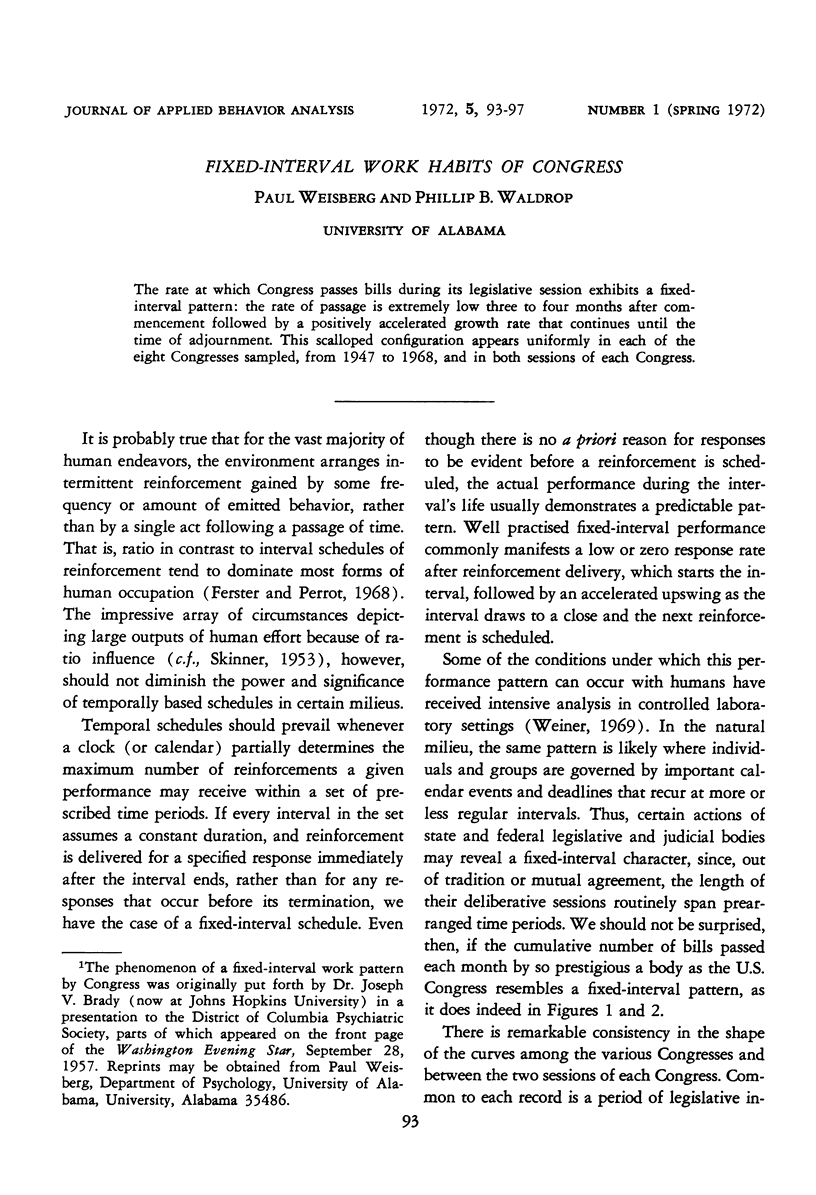
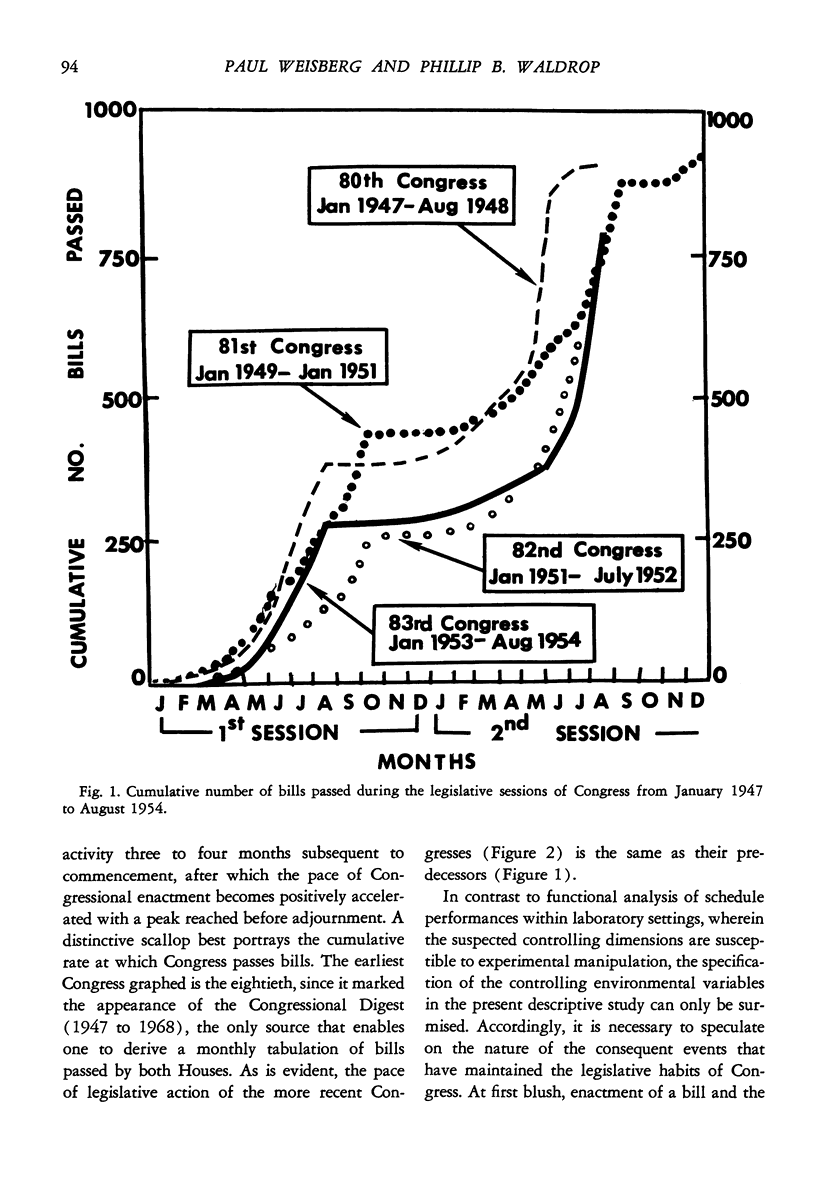
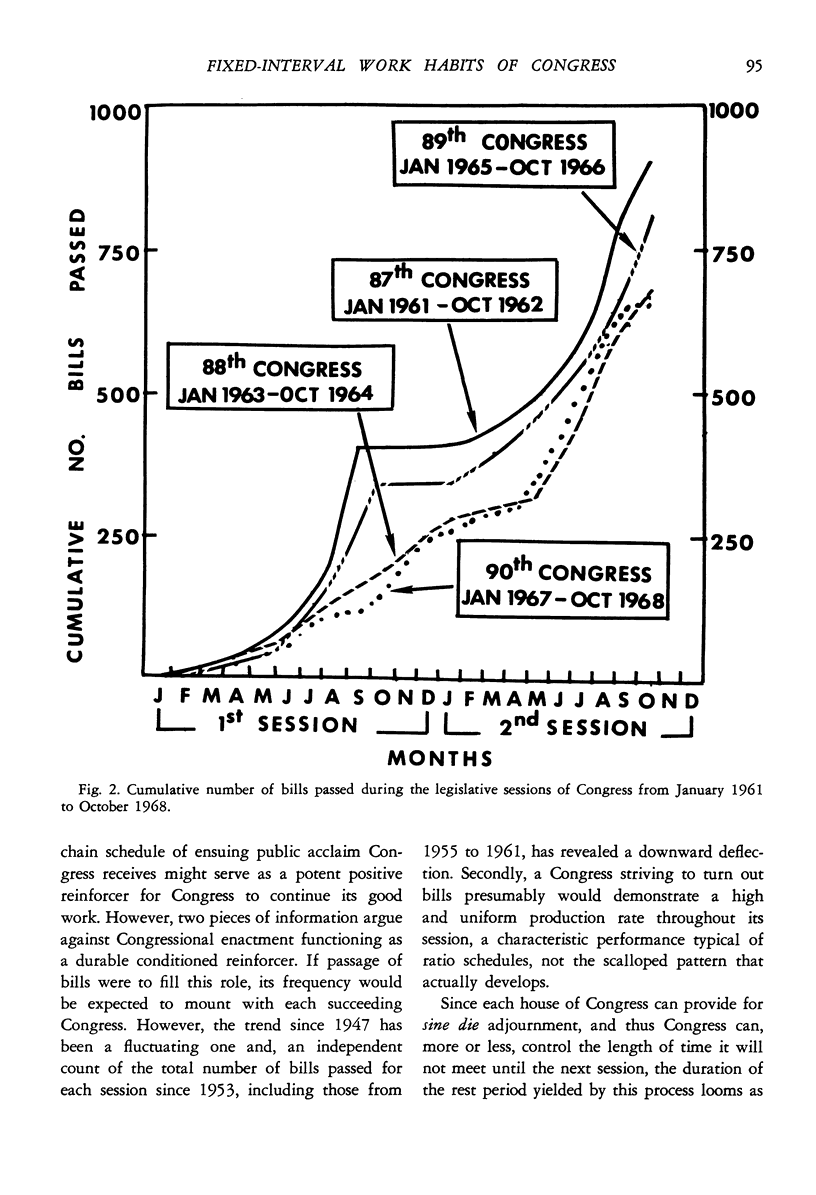
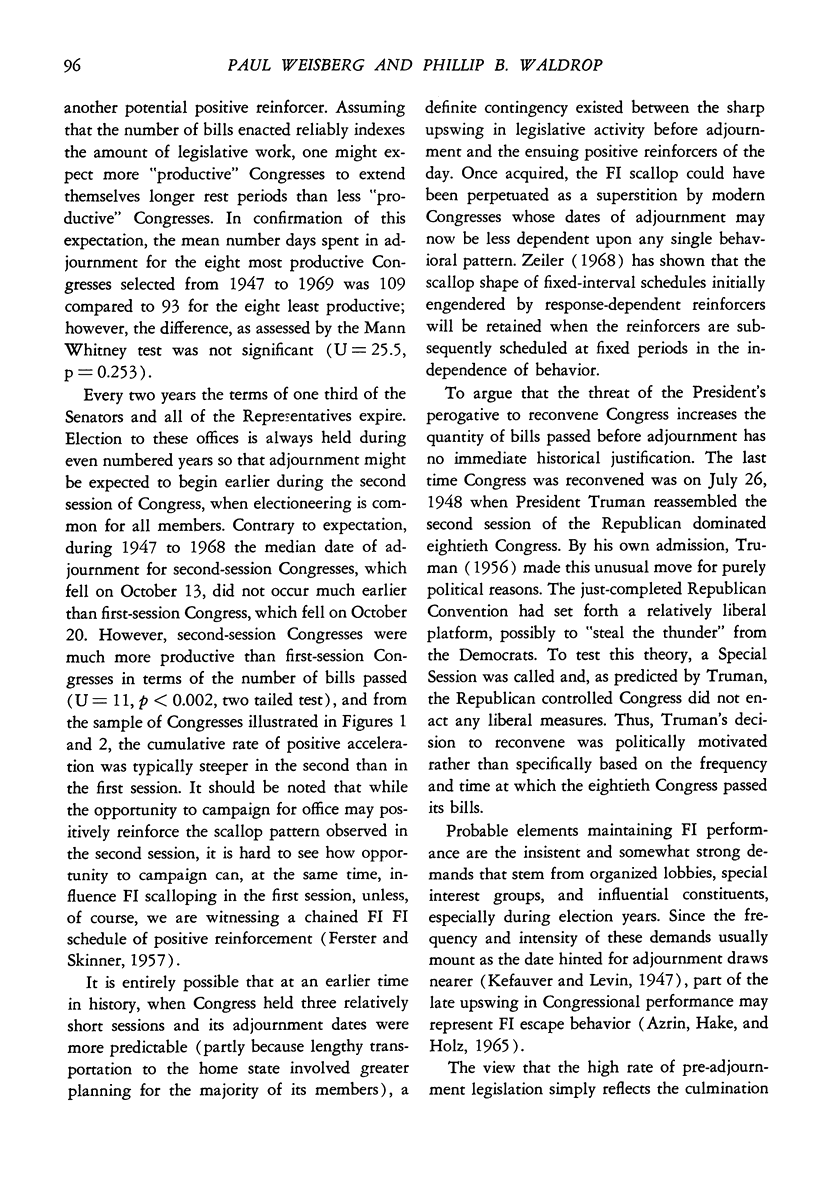
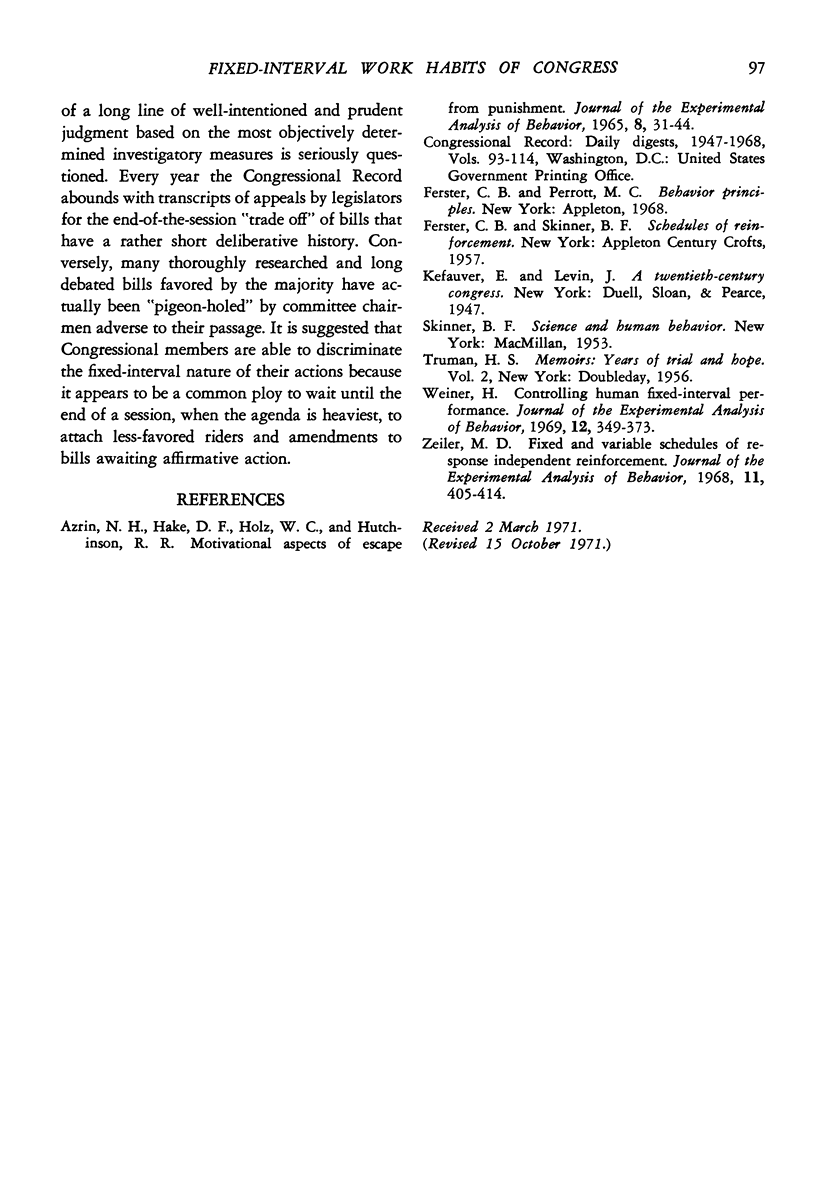
Selected References
These references are in PubMed. This may not be the complete list of references from this article.
- AZRIN N. H., HAKE D. F., HOLZ W. C., HUTCHINSON R. R. MOTIVATIONAL ASPECTS OF ESCAPE FROM PUNISHMENT. J Exp Anal Behav. 1965 Jan;8:31–44. doi: 10.1901/jeab.1965.8-31. [DOI] [PMC free article] [PubMed] [Google Scholar]
- Weiner H. Controlling human fixed-interval performance. J Exp Anal Behav. 1969 May;12(3):349–373. doi: 10.1901/jeab.1969.12-349. [DOI] [PMC free article] [PubMed] [Google Scholar]
- Zeiler M. D. Fixed and variable schedules of response-independent reinforcement. J Exp Anal Behav. 1968 Jul;11(4):405–414. doi: 10.1901/jeab.1968.11-405. [DOI] [PMC free article] [PubMed] [Google Scholar]


